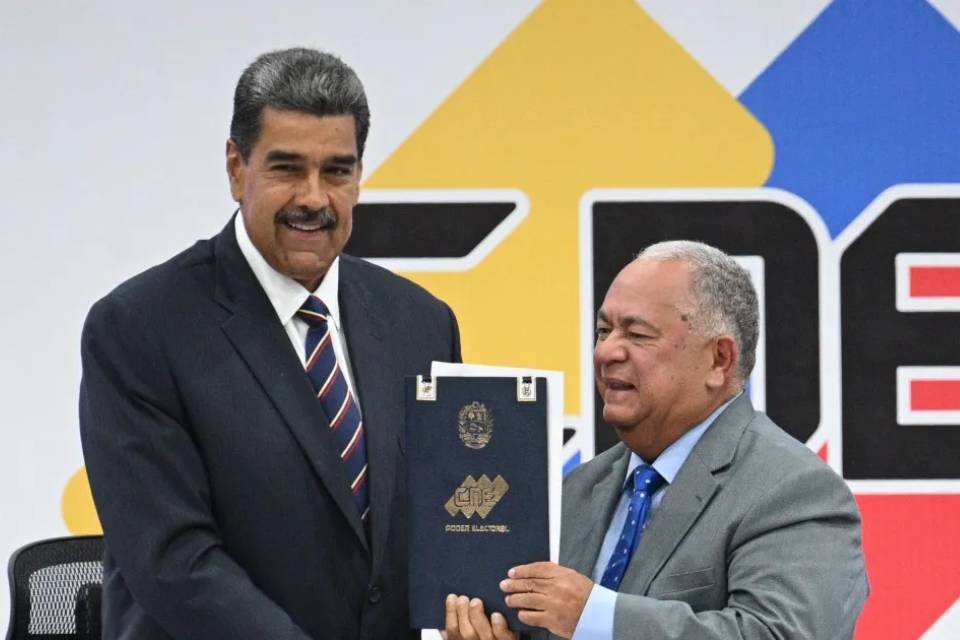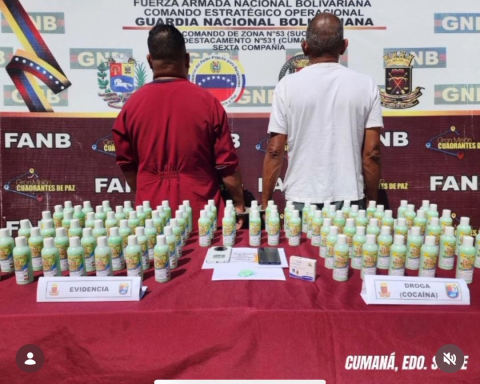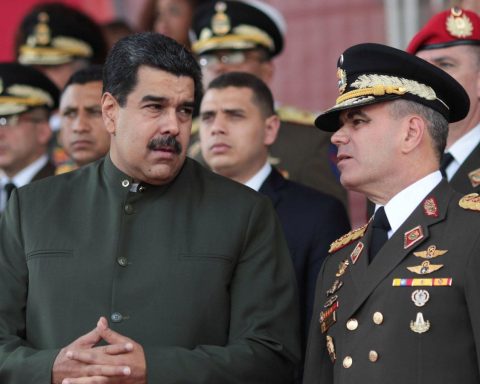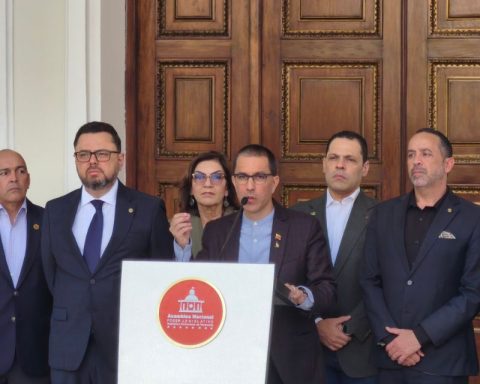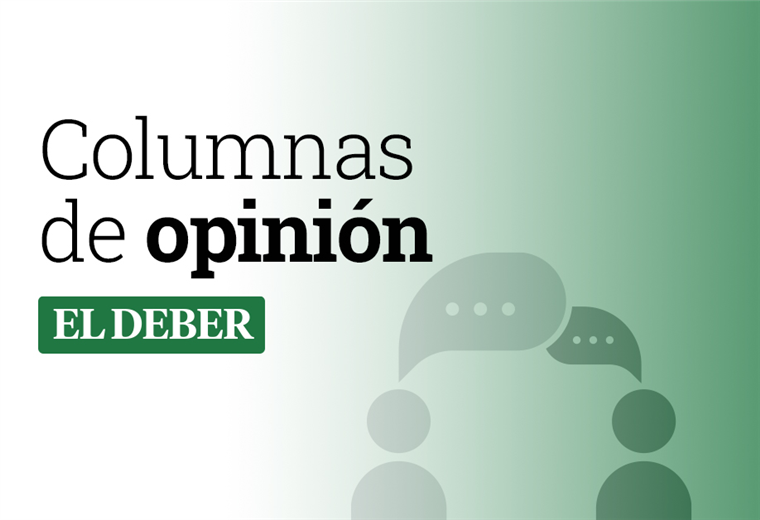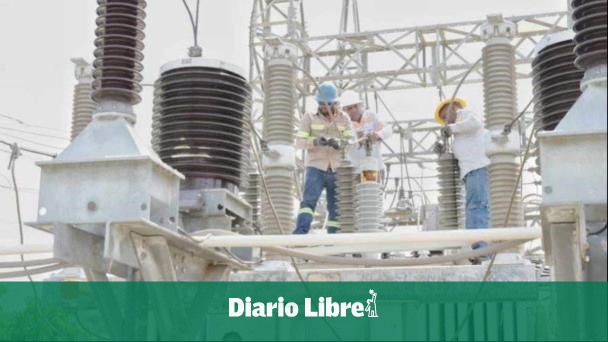Almost five months before the Venezuelan presidential election, national politics has divided the nations of the world into three poles: those who do not recognize the results announced by the National Electoral Council (CNE) and accepted the minutes presented by the opposition as true; who recognize the victory of Nicolás Maduro for the third consecutive period; and those who ask for greater clarity and transparency in the presentation of results.
On July 28, Venezuelans went out to vote, but the process was marred by an alleged hack of the electoral system that more than four months later continues without allowing the publication of the electoral records that ratify the alleged victory of Nicolás Maduro with 51, 9% of the votes as assured by the president of the CNE, Elvis Amoroso.
Given this, Mission Trutha propaganda platform of the Venezuelan government, assured that at least 53 countries have recognized the triumph of Nicolás Maduro over the diplomat Edmundo González, representative of the country’s opposition.
*Read also: President of WOLA: Refusal to present minutes makes recognition of Maduro unfeasible
The countries that support Maduro
According to the website, The total number of countries that subscribe to Maduro’s victory would be: 18 countries on the Asian continent such as China, Vietnam and Indonesia; 17 from Africa; 12 from Latin America and the Caribbean; 4 from Eurasia and 2 from Europe. For the newspaper AS, the figure is 40 countries ratifying the victory of Nicolás Maduro.
Among the countries that greeted and Recognizing Maduro as the winner of the process are Russia, China, Iran, Turkey, North Korea, Serbia, Cuba, Nicaragua and Honduras, Bolivia, Qatar, Syriasome African nations and others of Arab origin.
For the political scientist and analyst Leandro Rodríguez, All these nations have something in common: they are not democratic regimes, this being the turning point between their tolerance for the re-election of Nicolás Maduro, whose triumph has been widely questioned by the international community and his management faces an investigation before the International Criminal Court for alleged crimes against humanity in an attempt to repress dissent.
«The results of July 28 have been recognized by countries whose transversal characteristic is that they are not democratic. We talk about China, we talk about Russia, we talk about African countries, Iran, Cuba, Nicaragua… which are non-democratic countries. We are talking about 50 to 60 nations that are giving this support to Nicolás Maduro. Now, the international democratic system that is made up of more than 140 nations, none of them have given support. Although they have not given a final verdict and have maintained a level of neutrality, there are nations that make up the European Union, Canada, the United States… that do recognize the triumph of Edmundo González,” Rodríguez stated.
Reserve of some allies
Faced with the acceptance of countries far from Venezuela, The neighbors have remained neutral and are waiting for the publication of the electoral records and the breakdown of the results.a demand that they have made known to the Venezuelan government, this is the position of nations such as Colombia and Brazil, as well as a position subscribed by Mexico.
Both the Colombian president, Gustavo Petro, and his counterpart in Brazil, Luiz Inácio Lula da Silva, have demanded that the Maduro government publish the electoral records and affirm that they will not recognize their government until the result is confirmed.
Recently, the Chamber of Representatives of Colombia He asked the government of this country not to appear at the inauguration of Nicolás Maduro on January 10. To which the leader responded: «I invite Congress not to invade the constitutional sphere of the president. In due course I will decide whether or not to attend the possession.
«Both Mexico, Petro’s Colombia and Brazil’s Lula have been historical allies of the Chavista regime. The simple fact that they do not recognize Maduro’s alleged victory is already a defeat for the government because they have been unconditional allies until now. If they have not been able to recognize the results that the CNE and the TSJ say, it is precisely because there are doubts. In other historical moments, even in 2018, they came to recognize Maduro’s victory even though the conditions were similar,” Rodríguez said.
For his part, according to the Brazilian president’s foreign policy advisor, Celso Amorim, he justified Venezuela’s veto at the last Brics Summit due to the “breakdown of trust” that occurred when it refused to present the electoral records.
«The fact that such important allies who are political bastions of Chavismo have not recognized it is not recognizing the result of the election. Something that calls into question the electoral process and the legitimacy with which Nicolás Maduro intends to take office on January 10. What’s more, a triumph for the opposition led by María Corina Machado and Edmundo González,” the analyst noted.
January 10 is not the end
For the political specialist, January 10 should not be considered a final or apocalyptic date; on the contrary, he considered that depending on what happens on this day, subsequent events will take shape.
«It is not a matter finite in time. It is a political process that can have an outcome before, on the same day or after January 10. Incurring on date is wrong. We know that we have a summit date that is January 10 because, constitutionally, it orders that the president-elect assumes his inauguration. But let’s not forget that it is an extremely complex process, it is not easy to elucidate with a precise date,” said Rodríguez.
Post Views: 602
